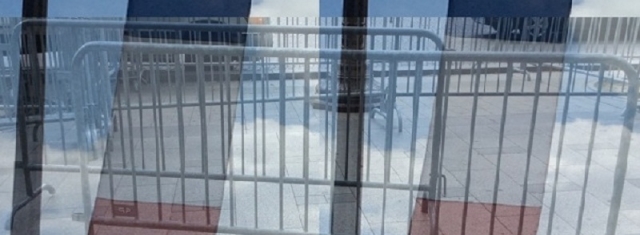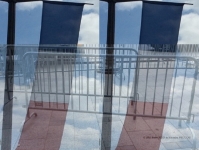Local
IN FRANCE THE STATE IS INTRODUCING RADICAL MEASURES OVER LIBERTY & FRATERNITY
BALANCE BETWEEN FREEDOM AND SECURITY

(Source: Ruby BIRD & Yasmina BEDDOU)
France calls itself 'the homeland of human rights' but has focused in the past week on limiting them as the government pushed through sweeping curbs on basic freedoms in the wake of the Paris massacre. The state of emergency could restrict public demonstrations during Paris climate talks. What impact will the attacks have on the Paris Climate Change Conference scheduled to begin in few days ?
The other is the tradition of the strong state ostensibly representative of the people, an evocation of the name of one of the republic´s first institutions, established in 1791, the Comité de sûreté générale ““ committee for general security. A few hours before the carnage of Friday the 13th, a general called Jean-Louis Desvignes, president of the Association of Reservists, Arcsi, posted a document on an internet forum debating “digital freedom“. It was headed by the words: 'Liberté, fraternité, surveillance'. (The Guardian)
With time, the United States has moved to ease some elements of the U.S.A. Patriot Act, passed in the aftermath of the Sept. 11 attacks. It has also strengthened oversight of intelligence agencies and of mass domestic surveillance in the wake of the revelations by Edward J. Snowden, the former contractor for the National Security Agency who leaked documents about surveillance....But advocates for civil liberties warned against governments going too far, and suggested that European nations had to be particularly careful that the measures they were taking were not aimed at one class of citizens: Muslims. (NYTimes)
In the edgy days since jihadists killed 130 people on Nov. 13, the government declared a 'war on terrorism', extended its initial post-attack state of emergency for three months and laid out plans to write further restrictions into the constitution. Civil libertarians protest that the crackdown could leave fundamental rights curtailed even after the crisis has past. But their objections have been hard to hear amid calls for tougher laws, details about the attacks and reports of French retaliatory bombing of Islamic State's Raqqa stronghold in Syria. (Reuters)
The National Assembly, or lower house of parliament, passed the sweeping new security measures on Thursday by an almost unanimous vote of 551 for and only six against. In the Senate the next day, the tally was 336 votes for and none against. In an Ifop public opinion poll published on Tuesday, 84 percent of those surveyed said they were 'ready to accept more controls and a certain limitation of freedoms'. (Reuters)
'The government is giving guarantees of security to a traumatized population that asks for ever more security, even at the price of sacrificing its own freedoms,' said Noel Mamere, one of the few deputies to vote against the new measures. 'In a few months, these same people will wake up with a hangover and realize that, in the name of fighting terrorism, the country has been locked down and our individual and collective liberties violated,' he told Reuters.
Ruby BIRD
http://www.portfolio.uspa24.com/
Ruby BIRD
http://www.portfolio.uspa24.com/
Ruby Bird Liberty Security France Paris Attacks Terrorism State Of Emergency Dark Shadow Radical Measures Homeland Of Human Rights Basic Freedom Human Rights League Amnesty International Restrictions Constitution Sweeping Curbs
Liability for this article lies with the author, who also holds the copyright. Editorial content from USPA may be quoted on other websites as long as the quote comprises no more than 5% of the entire text, is marked as such and the source is named (via hyperlink).






